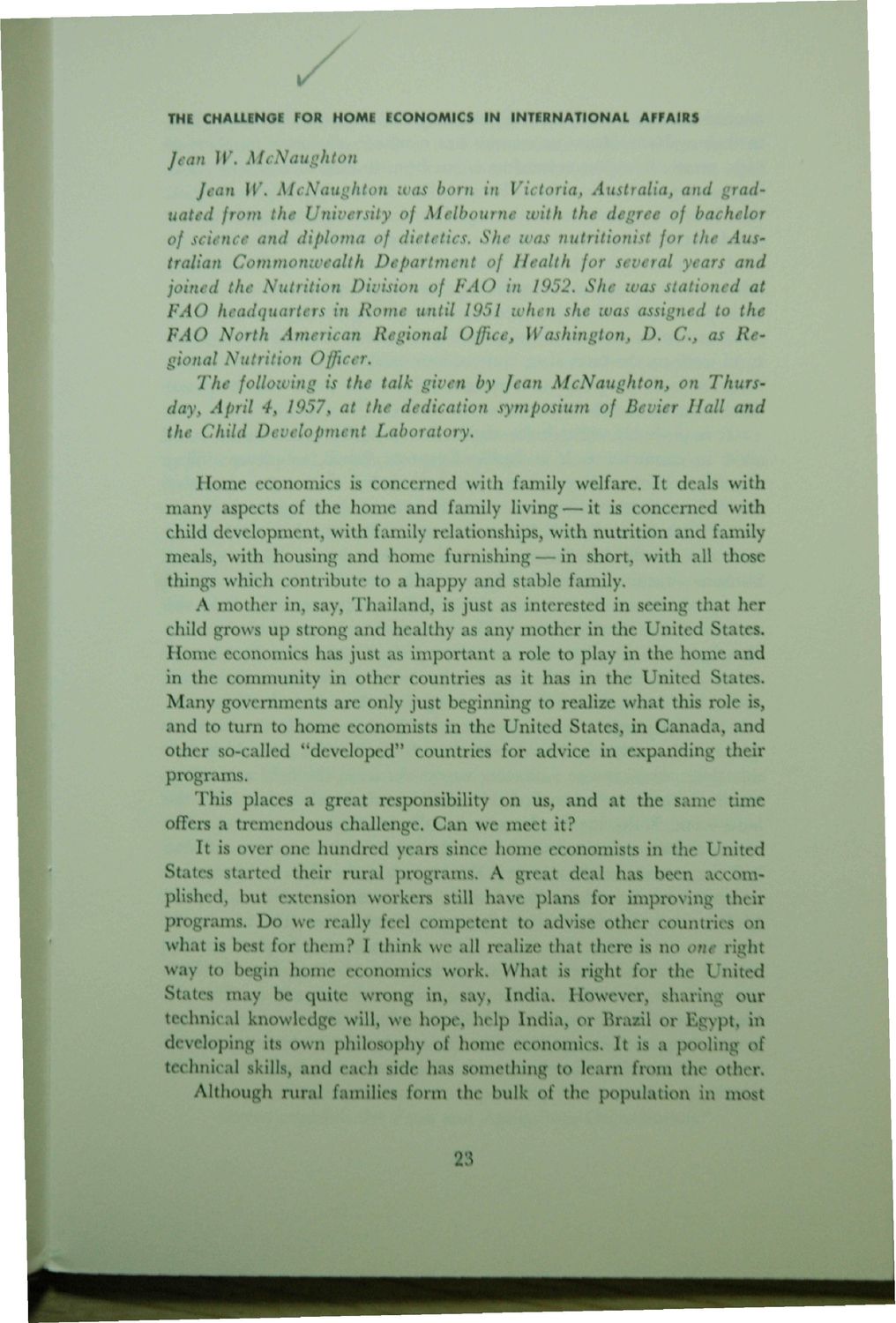| |
| |
Caption: Dedication - Home Economics - Challenge of Home Economics
This is a reduced-resolution page image for fast online browsing.

EXTRACTED TEXT FROM PAGE:
y TNI CHALLENGE FOR HOME ECONOMICS IN INTERNATIONAL AFFAIRS Jean W. McNaughton Jean W. McNaughton was born in Victoria, Australia, and graduated from the University of Melbourne with the degree of bachelor of science and diploma of dietetics. She was nutritionist for the Australian Commonwealth Department of Health for several years and joined the Nutrition Division of FAO in 1952. She was stationed at FAO headquarters in Rome until 1951 when she was assigned to the FAO North American Regional Office, Washington, D. C, as Re* gional Nutrition Officer* The following is the talk given by Jean McNaughton, on Thursday, April 4, 1957, at the dedication symposium of Bevier Hall and the Child Development Laboratory. Home economics is concerned with family welfare. It deals with many aspects of the home and family living — it is concerned with child development) with family relationships, with nutrition and family meals, with housing and home furnishing —in short, with all those things which contribute to a happy and stable family. A mother in, say, Thailand, is just as interested in seeing that her child grows up strong and healthy as any mother in the United States. Home economics has just as important a role to play in the home and in the community in other countries as it has in the United States. Many governments arc only just beginning to realize what this role is, and to turn to home economists in the United States, in Canada, and other so-called "developed11 countries for advice in expanding their programs. This places a great responsibility on us, and at the same time offers a tremendous challenge. Can we meet it? It is over one hundred years since home economists in the United States started their rural programs. A great deal has been accomplished, but extension workers still have plans for improving their programs. Do we really feel competent to advise other countries on what is best for them? I think we all realize that there is no one right way to begin home economics work. What is right for the United States may be quite wrong in, say, India. However, sharing our technical knowledge will, we hope, help India, or Brazil or Egypt, in developing its own philosophy of home economics. It is a pooling of technical skills, and each side has something to learn from the other. Although rural families form the bulk of the population in most 23
| |